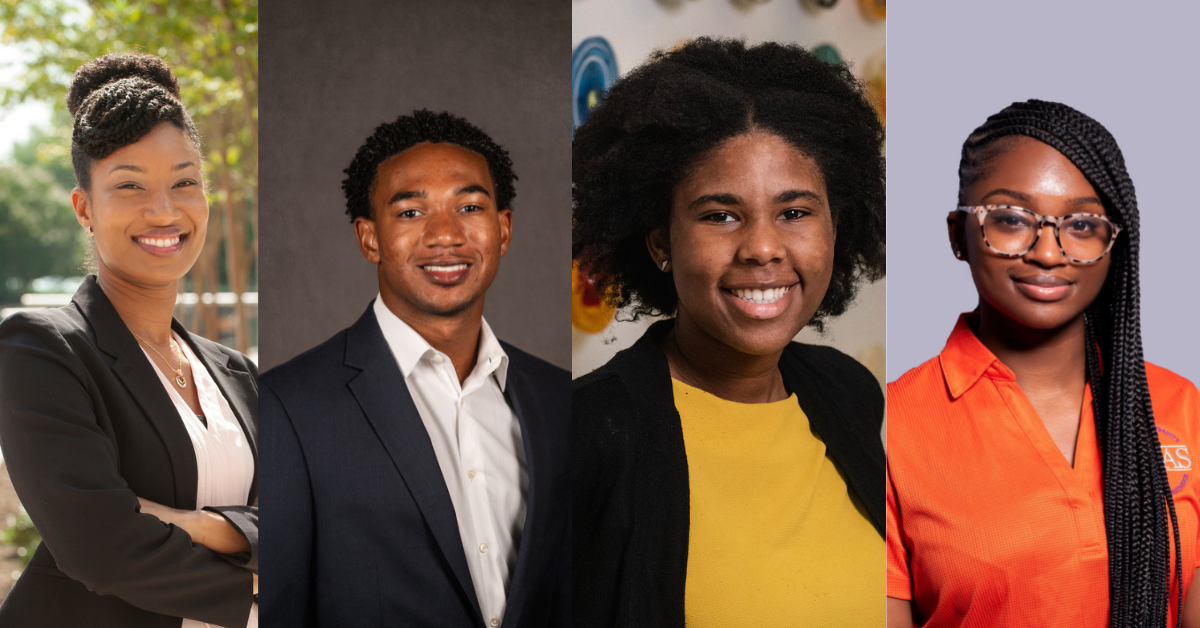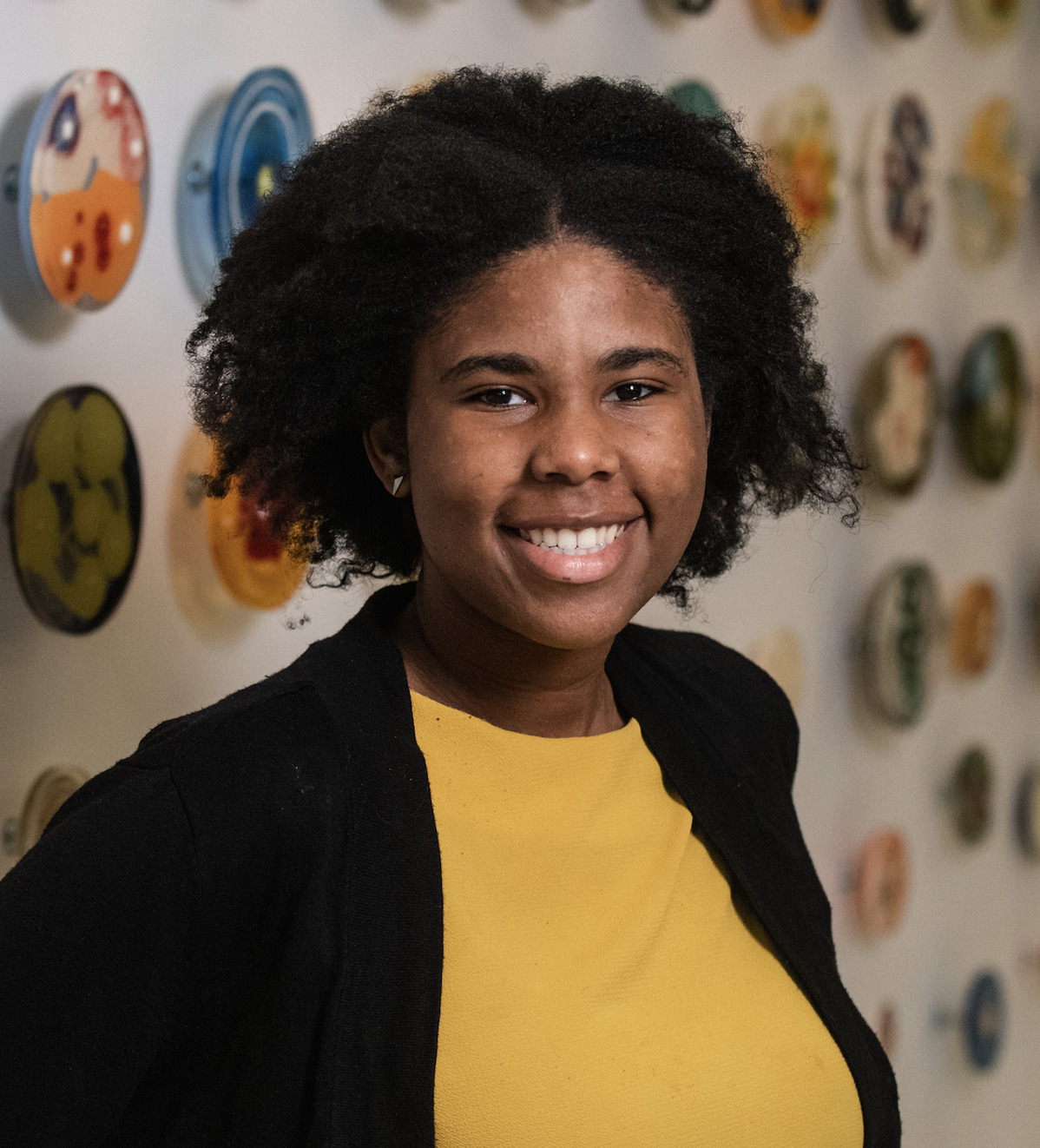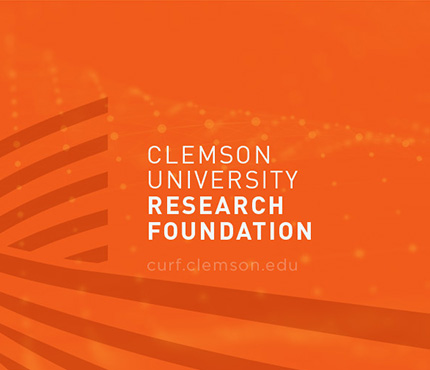
The Nanobiotechnology Laboratory at Clemson University focuses on researching and developing clinically translatable therapeutic delivery strategies to improve targeted treatment of disease. The lab utilizes materials science, nanobiotechnology, gene therapy, and drug delivery to advance cancer therapies.

“I view their success as my success and am happy to help them develop as cancer researchers and guide them in achieving their career goals.”
Dr. Angela Alexander-Bryant is the Principal Investigator in the Nanobiotechnology Laboratory. She received her bachelor's and master's degree in Material Sciences and Engineering from John Hopkins University. Additionally, she completed her PhD in 2015 in the Clemson-MUSC Joint Bioengineering Program. She currently serves as an Assistant Professor in the Department of Bioengineering at Clemson University and is the department’s Director of Diversity and Inclusion. Within the various titles that she holds, Alexander-Bryant constantly strives to uplift students from underrepresented groups and empower those around her to see the potential of excellence within themselves. Unsurprisingly, she holds numerous awards and honors, including the Gates Millennium Scholarship, the Minority Scholar in Cancer Research Award from American Association for Cancer Research, and the BMES Innovation and Career Development Award from the Biomedical Engineering Society. Her research specializes in drug and gene delivery, biomaterial design, and targeted therapy and controlled release.
When Dr. Alexander-Bryant founded the Nanobiotechnology Lab, she envisioned a place where students felt empowered to research the development of novel delivery systems for chemotherapy and gene treatment of cancer. While she values her role as Principal Investigator, one of her primary focuses has been to ensure that her student researchers receive one-on-one mentorship from her and feel valued in their efforts to advance cancer research. Some of the ways she is doing this include taking time during weekly lab meetings to genuinely check in on how everyone is doing, planning events outside of the lab for her researchers to further a sense of belonging, and always bringing a spirit of positivity no matter the circumstances. When asked about what she loves the most about working with her students, she expressed that their brilliance and drive is contagious.
We have highlighted a few of these brilliant students below.

What inspired your involvement in the Nanobiotechnology Laboratory?
“Prior to my freshman year, I participated in EUREKA, a research program for incoming honors students at Clemson. I enjoyed that experience and knew that I would want to continue doing research at Clemson. During my freshman year, I participated in Dr. Alexander-Bryant's Creative Inquiry for freshmen students to manage balancing school and extracurriculars with lower intensity research. After that experience, I determined that I would want to continue doing research during my undergraduate years and I would love to continue to work with Dr. Alexander-Bryant. Once I learned that she had a CI focusing on treating cancer, I jumped at the opportunity to be a part of her lab. I've had many family members impacted by cancer so I was ecstatic at the chance to work as part of a team to make more efficient treatments.”
What is your research role in the lab?“I am a part of the fusogenic peptide team. My research consists of developing a nanoparticle system made up of a fusogenic peptide complexed with siRNA to treat ovarian cancer. My personal goal is to determine the efficacy of the peptide complexed with siRNA at silencing genes, and comparing the effectiveness of monotherapy vs combination therapy with the peptide-siRNA complex and paclitaxel.”

What inspired your involvement in the Nanobiotechnology Laboratory?
“I became involved in Dr. Alexander-Bryant's lab to learn more about a career in science and what exactly research is. I had always heard about research, but I have always wondered what exactly that entails and how things go from the lab to be for actual people to use. This lab has allowed me to see how the basic sciences can contribute to the advancement of treatment and research. Additionally, I joined this lab because all of its projects pertain to cancer and the development of cancer treatments. From utilizing basic cell biology and biochemistry to utilizing my engineering problem-solving skills, I was really excited to join and further my education as a bioengineer.”
What is your research role in the lab?
“I am currently an honors undergraduate researcher that has been in the lab since fall of 2019. I do various experiments under my graduate mentor while also completing experiments that will contribute to my honors thesis. The research I do pertains to developing peptide nanocarriers to deliver therapeutics to ovarian cancer cells.”
What are your plans after graduating and how has the lab contributed to your career aspirations?
“My plan to attend medical school after graduation and ultimately have a career where I can address health disparities throughout the United States. This lab has helped me develop skills as a scientist and life-long learner. It has also shown me that you can be a successful Black woman in science, which is really important for me to see and to have a mentor in. Ultimately, this lab has solidified my passion for science and medicine, and I am so glad that I am able to be a part of this lab!”

Kharimat Lora Alatise is a doctoral Bioengineering student from East Hartford, Connecticut. She completed her Bachelor of Science in Biomedical Engineering at the University of Rochester. Lora currently serves as the President of the Clemson Black Graduate Student Association and is a part of the Clemson Call Me Doctor Fellowship program. She was additionally an Honorable Mention Recipient of the National Science Foundation Graduate Research Fellowship.
What inspired your involvement in the Nanobiotechnology Laboratory?
“Since high school, I have been very interested in math, science, and medicine, but I was unsure how to merge all of my interests. When I got to college at the University of Rochester, I studied biomedical engineering because I knew it was a field where I could combine my interests in one. Being intrigued by the nature of diseases like cancer and sickle cell, which affected people that I know, I decided that I wanted to conduct research in either of those areas. It was through the Ronald E. McNair Scholars program that I was able to begin conducting research in a therapeutic biomaterials lab during my sophomore year. I was exposed to nanoparticle-based drug delivery for cancer treatment in that lab, which piqued my interest and desire to continue this type of research in graduate school. I knew that when choosing advisors for graduate school, not only did I want to do exciting biomaterials/drug delivery work; I wanted to be in a place where I could grow as a scientist and as a person. Mentorship has always played a significant role in my life, and I wanted to be advised by someone who understood the value of mentorship.”
What is your research role in the lab?
“I am a third-year doctoral student working on a project entitled "Multifunctional Peptide-siRNA Nanocomplexes to Treat Chemoresistant Ovarian Cancer." In this project I characterize peptide-based nanomaterials and determine their ability to deliver a gene therapy (small interfering RNAs) into ovarian cancer cells. One of the main goals of this project is to utilize a drug delivery system that can specifically target ovarian cancer cells and deliver siRNAs.”
What are your plans after graduating and how has the lab contributed to your career aspirations?
“At the moment, I am open to a variety of options! I know that immediately after graduation, I would like to explore careers outside of academia to diversify my experience. My long-term goal is to become a PI where I can mentor students, run a state-of-the-art lab, and create technologies that impact/improve human health. Because Dr. Alexander-Bryant loves having undergraduate students conduct research, she pairs undergraduates with graduate students. It gives me the opportunity to mentor and train students, which makes me feel like a mini-PI. Additionally, Dr. Alexander-Bryant is passionate about professional development and helping her students develop holistically, which I appreciate. She encourages us to seek opportunities that align with our interests. Every week, we have lab meetings where we discuss research updates, a journal club, and edit writing samples. I feel adequately prepared to present my work to a broad audience and write robust grant applications. Lastly, Dr. Alexander-Bryant has created an environment where new and creative ideas are welcome. As someone who wants to have my own laboratory one day, I think it's a great practice to develop new ideas and implement them into my research. “
Lab Accomplishments:
- December 2021 - Graduation of their first Ph.D. student, Timmy Samec. He is now an Associate Scientist at Lovance Biotherapeutics
- 2021- Awarded an NIH Early Career Award, for Dr. Alexander-Bryant's proposal titled "CAREER: Multifunctional Peptide Nanocarriers for Delivery of Nucleic Acid Therapeutics”
- 2022 - Filing a patent application for our novel peptide delivery systems. Citation: Patent filed, “Fusogenic peptide compositions and methods of cargo delivery,” T. Samec and A. Alexander-Bryant, 2022. U.S. Provisional Patent Application No. 63/303,670.
- Publication: Pitz, M, Nukovic, A, Alexander-Bryant, A, 2021. Factors affecting secondary and supramolecular structures of self-assembling peptide nanocarriers. Macromolecular Bioscience. 2022 Feb;22(2):e2100347. Epub 2021 Nov 20. PMID: 34800001.
For more information about Dr. Alexander-Bryant's Nanobiotechnology Lab, please visit their website.












